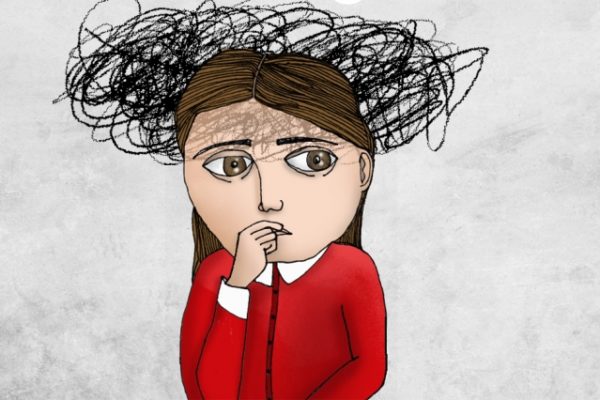In Part One of our series on stress and anxiety, Dr. Robert Stockman, Ph.D., 4C Medical Group’s psychologist offers a comprehensive explanation of the origination of stress, its effects on the mind and body, and ways to cope and minimize its impact on our wellbeing.
Stress can potentially be one of the more damaging conditions to both our minds and bodies. Interestingly, we know a great deal about what stress is, what causes it, and even how to potentially reduce it. Unfortunately, in my opinion, it remains one of the most neglected and misunderstood conditions by many patients experiencing high and prolonged stress in their lives.
Going to a bookstore, library, or searching the internet will result in a voluminous amount of oftentimes good information to understand, avoid, and reduce stress. But for many caught in the grip of significant stress in one’s life, it may be very difficult to identify and cope with major stressors alone.
How to define stress
Stress may be defined as a naturally occurring response to the pressures of living. A certain amount of stress is necessary, unavoidable, and even healthy. Eustress is the word to define positive stress which is an experience that motivates and focuses our attention, is exciting, and is within our coping skills. However, stress becomes negative when what we are experiencing in our lives causes anxiety, depression, demotivates, feels bad and exceeds our ability to cope and causes distress.
Distress comes in many forms and is unique to each of us. Problems at work, with relationships, money, medical conditions including chronic pain, mental and psychological challenges, legal issues, death, sleep problems, are just a few examples that may become major sources of distress.
How to effectively handle stress
There are many effective strategies and techniques to reduce the distress that I support and encourage patients to try. Yoga, Pilates, Tai Chi, meditation, mindfulness, religious and spiritual practices, medication, massage, acupuncture, are all examples.
As a Psychologist, however, I am most concerned with and see most often in my practice what may be termed extreme stress that does harm to both the body and the mind. Stress at this level is the result of prolonged, frequently occurring, and intense stress reactions when the body and mind reach the exhaustion phase. This extreme stress condition puts the body into a survival mode of fight, flight, or freeze state when a neurochemical reaction floods the body.
At this point, the body does not know the difference between a Saber Tooth Tiger getting ready to attack from our ancient past or a lawsuit, marital problems, or work stress. In this state of prolonged, frequent high intensive stress the body is not able to recover its balance and becomes exhausted. When this occurs physiologically our thinking becomes impaired, neurogenesis or the ability to form new neuron connections in the brain necessary to adapt to problems(stressors) is negatively impacted, and the immune system is compromised. The potential result is anxiety, depression, the risk of heart attack and stroke is increased, and we become vulnerable to many other medically and psychologically serious and harmful conditions that affect our well-being.
Take steps to handle your stress
The points I wish to stress (no pun intended) in this brief article of a very complex subject are as follows; stress in life is naturally occurring and unavoidable, in the extreme it is important to take seriously, stress is more than a thinking problem and cannot be solved only by thinking, the body needs to be paid attention in order to regain the strength and resources to adapt, persevere, and overcome life’s challenges.
Finally, exploring your unique and individual stress responses, gaining insight into the understanding of how and why you react to it as you do, and then taking the steps and making the effort to respond in a less harmful more beneficial way is possible.
To schedule an appointment with Dr. Stockman, please call our office: (480) 455 – 3000.
About Dr. Stockman:
 Having experienced much of what war, spirituality, family, business, and academia has to offer, Dr. Stockman combines his experience and education to help support and guide others toward meeting life’s mental, psychological and emotional challenges. Our lives can be overwhelming at times, stressful, frustrating, angering, disappointing, frightening, depressing, sad, confusing, and traumatic or just not seem to make any sense. Whether you are dealing with aging, mid-life challenges, career stress, marriage and relationship issues, adolescent transitioning, or childhood development, Dr. Stockman’s non-judgmental, sincere approach will enable you to overcome obstacles and reach your potential and achieve your life’s goals.
Having experienced much of what war, spirituality, family, business, and academia has to offer, Dr. Stockman combines his experience and education to help support and guide others toward meeting life’s mental, psychological and emotional challenges. Our lives can be overwhelming at times, stressful, frustrating, angering, disappointing, frightening, depressing, sad, confusing, and traumatic or just not seem to make any sense. Whether you are dealing with aging, mid-life challenges, career stress, marriage and relationship issues, adolescent transitioning, or childhood development, Dr. Stockman’s non-judgmental, sincere approach will enable you to overcome obstacles and reach your potential and achieve your life’s goals.
As a general practitioner, Dr. Stockman designs treatment strategies that are tailored to recognize and respect individuality and uniqueness. He believes in a contextual model that takes into account the interplay between the physical, emotional, and mental aspects of a person’s life. He practices cognitive, behavioral, and emotional therapies and techniques while recognizes the importance of establishing a safe and trusting therapeutic relationship, creating treatment expectations, goals, and actions necessary for symptom reduction and leading to a better quality of life.
In addition to his experience with depression, anxiety, stress, mood, and life adjustment issues in all their many forms; he has developed a number of specific areas of interest. These include, (1) the challenges facing aging generations, (2) finding meaning and purpose in one’s life, (3) the treatment of trauma in general (PTSD), (4) and marriage and family therapy.
Comments are closed.



